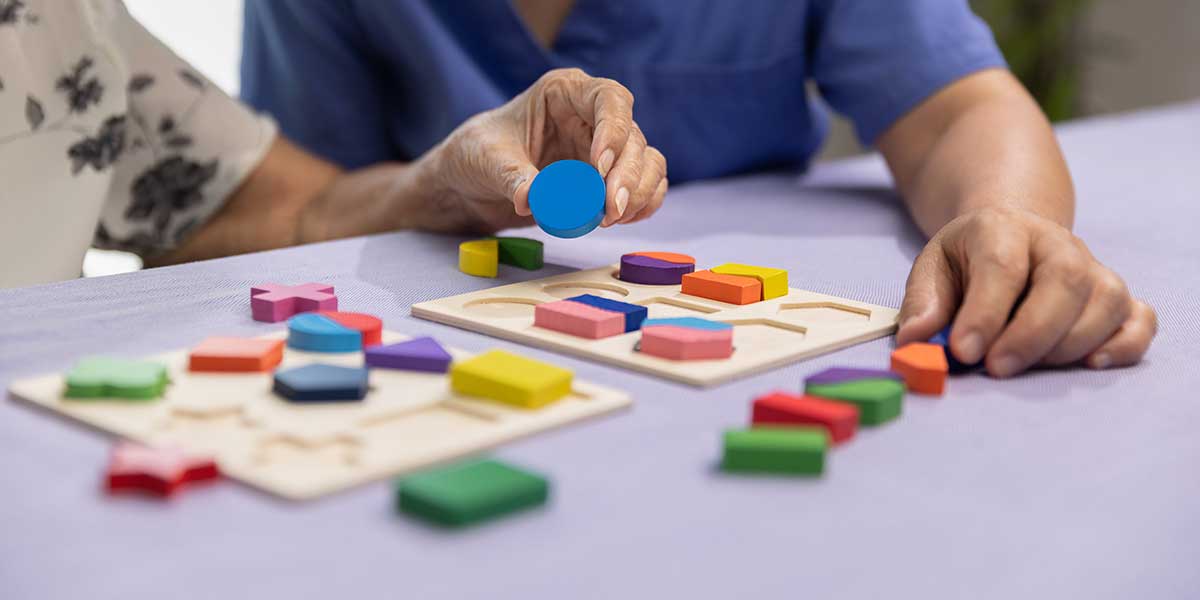Play in Occupational Therapy for Children and Adults
Picture this: a group of children laughing and playing together in a park, their imaginations running wild as they explore the world around them. Meanwhile, in a therapy room nearby, a young adult carefully places colored blocks into a pattern, a look of concentration on their face. What do these scenes have in common? They both showcase the transformative power of play.
The Science Behind Play Therapy
Play is not just a frivolous pastime—it’s a fundamental aspect of human development that shapes our brains, bodies, and behavior from infancy to adulthood. According to the American Academy of Pediatrics, play in occupational therapy is essential for healthy brain development, socialization, and emotional well-being in children.
But what about adults? That’s where occupational therapy comes in. Occupational therapists are trained professionals who help people of all ages overcome physical, cognitive, and emotional challenges by engaging in purposeful activities, including play. Through play-based interventions, occupational therapists harness the inherent joy and creativity of play to promote healing, learning, and growth.
So, what exactly makes play therapy so effective? Let’s explore the science behind it!
Psychological Benefits
Play has been shown to reduce stress, anxiety, and depression, while promoting feelings of joy, relaxation, and empowerment. By engaging in play, individuals can express themselves freely, explore their emotions, and develop coping strategies for life’s challenges.
Physiological Benefit
Play stimulates the release of endorphins, dopamine, and other feel-good chemicals in the brain, leading to improved mood, increased energy levels, and enhanced overall well-being. Additionally, physical activities like running, jumping, and climbing during play promote cardiovascular health, muscle strength, and coordination.
Brain Development
Research suggests that play promotes neural connections in the brain, particularly in areas responsible for learning, memory, and executive function. By engaging in playful activities, individuals can enhance their cognitive abilities, problem-solving skills, and creativity.
Motor Skills
Whether it’s building with blocks, drawing with crayons, or kicking a ball, play helps develop fine and gross motor skills in children and adults alike. These skills are essential for tasks like writing, dressing, and participating in recreational activities..
Communication and Social Skills
Play provides a natural context for practicing communication, cooperation, and social interaction. Whether playing pretend with peers or engaging in turn-taking games, individuals learn valuable social skills that are essential for building relationships and navigating the complexities of social life..
Discover More
Numerous studies have demonstrated the effectiveness of play therapy in addressing a wide range of physical, cognitive, and emotional issues. For example, a study published in the Journal of Occupational Therapy in Mental Health found that play-based interventions were highly effective in reducing symptoms of anxiety and depression in adults with mental health disorders. Similarly, a meta-analysis published in the Journal of Autism and Developmental Disorders showed that play therapy led to significant improvements in social communication skills and adaptive behaviors in children with autism spectrum disorder.
In essence, play therapy is not just a luxury—it’s a powerful tool for promoting health, happiness, and resilience across the lifespan. Whether you’re a child learning to navigate the world or an adult seeking to reclaim your independence, play offers a pathway to healing, growth, and self-discovery.
Play-Based Interventions for Children
Meet Lucas, a playful six-year-old with autism spectrum disorder. For Lucas, occupational therapy sessions are a time to explore, create, and connect with the world around him. Through interactive games and sensory activities, Lucas learns to navigate social interactions and regulate his emotions in ways that were once unimaginable.
Occupational therapists use a variety of play-based interventions to address the unique needs of children like Lucas. From sensory exploration to pretend play, these activities are carefully designed to promote skill development and foster independence. Let’s take a closer look at some common play-based interventions used in pediatric occupational therapy:
Sensory Play
Sensory activities, such as playing with textured materials or exploring different smells and tastes, help children like Lucas regulate their sensory systems and improve their tolerance to various stimuli.
Fine Motor Activities
Activities like stringing beads, cutting with scissors, and drawing with crayons not only strengthen hand muscles but also enhance coordination and dexterity, crucial skills for tasks like writing and self-care.
Social Skills Games:
Through games like turn-taking activities, cooperative play, and role-playing scenarios, children like Lucas learn valuable social skills such as sharing, communication, and empathy.
Gross Motor Play:
Running, jumping, climbing, and balancing activities not only promote physical fitness but also improve coordination, spatial awareness, and body control.
By incorporating these play-based interventions into therapy sessions, occupational therapists help children like Lucas build confidence, develop new skills, and overcome challenges, setting them on a path to success both in the classroom and beyond.
Play Therapy for Adults
Now, let’s shift our focus to adults like Sarah, a vibrant 30-year-old who suffered a traumatic brain injury in a car accident. Through occupational therapy, Sarah discovered the power of play in her rehabilitation journey. Simple activities like sorting colorful blocks and playing memory games not only helped her regain cognitive function but also lifted her spirits during challenging moments.
Occupational therapists recognize that play is not just for children—it’s a powerful tool for adults as well. Whether recovering from injury, managing chronic conditions, or seeking to improve overall well-being, adults like Sarah benefit immensely from incorporating play into their therapy sessions.
Here are some ways occupational therapists use play therapy to support adults in their rehabilitation and wellness journeys:
Cognitive Games
Memory games, puzzles, and brain teasers are not only fun but also effective in improving cognitive function, memory, and problem-solving skills, making them invaluable tools for adults like Sarah recovering from brain injuries or neurological conditions.
Functional Activities
Everyday tasks like cooking, gardening, and household chores can be transformed into therapeutic activities that promote independence, enhance motor skills, and improve overall quality of life for adults undergoing rehabilitation.
Expressive Arts
Painting, drawing, music, and other creative activities offer a means of self-expression and emotional release for adults like Sarah coping with trauma, grief, or mental health challenges. These activities can be particularly beneficial in reducing stress, anxiety, and depression.
Social Engagement
Group activities, team sports, and community outings provide opportunities for socialization, peer support, and meaningful connections, vital aspects of recovery and well-being for adults like Sarah rebuilding their lives after injury or illness.
Through play therapy, occupational therapists empower adults like Sarah to rediscover joy, regain independence, and embrace life to the fullest, one playful moment at a time.
Discover the transformative potential of play activities within the realm of occupational therapy at Therapeutic Potential, Inc. Our specialized programs cater to both adults and children, offering tailored interventions that harness the power of play to promote physical, cognitive, and emotional well-being.
Whether you’re a parent seeking support for your child’s developmental needs or an adult navigating the challenges of injury or illness, our team of dedicated therapists is here to guide you on a journey of growth and healing.
Explore our our comprehensive occupational therapy services for adults and kids. Uncover how play-based interventions can unlock new possibilities for you or your loved ones, fostering independence, resilience, and joy along the way.
Ready to take the first step towards a brighter future? Contact us today to schedule a consultation and discover how play activities in occupational therapy can make a difference in your life.







